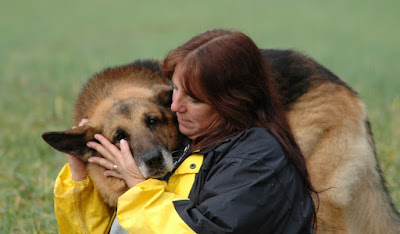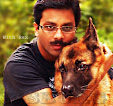Allelomimetic Behavior in Dogs
More than one adult dogs that stay together – eat, play, sleep together are more prone to exhibit Allelomimetic behavior – one copying the dominating member of the pack. This is a common behavior in dogs is often noticed when a dog joins in barking or howling when his/her partner dog(s) will bark or howl. The other dog who is joining his pack members in barking will just imitate his members without even knowing the reason of barking.
The ability of dogs to induce themselves to act like the other members “in an adaptive manner” in a non-competitive situation brings in the sense of unity in them. Allelomimetic behavior is a type of natural social behavior found in the social animals – most prominent in canines – to imitate or mimic the activities of his/her pack members. This natural behavior is genetically hardwired in puppies – irrespective of breed and is one of the most significant factors and natural process of learning –can also be called “social learning”.
Allelomimetic behavior vs. Social facilitation
Closely resembling, the concept of “social facilitation” and “Allelomimetic behavior” are obviously related, but have subtle differences.
Allelomimetic behavior is a type of natural pack-coordinated behavior based on the natural inclination of any social animal to follow the other members of the pack. Social facilitation, on the other hand, refers to the behavior exhibited in the groups where the presence of a dog results in strengthening a specific behavior. For instance, two dogs staying together may bark more than when they were separate.
Takeaway:
If you have a dog with behavioral problem(s), it is suggested not adopting another dog to be kept together. The presence of the problem dog will environmentally influence the new member to develop the problem behavior. Even if you are adopting a dog from the best bloodline (without aggression problem), your new member is likely to develop aggressive behavior if your existing dog has aggression problem.
If you already have a problem dog, and still planning to get a new one, then you must make an arrangement to keep them separate. There is a pretty good chance that the magnitude of the problem behavior will be developed in your new puppy and will be eventually amplified, stimulated by the presence of a dog with behavioral issues.
Canines are doubtlessly an intelligent species, whether a pedigreed dog or a mongrel and irrespective of breed. Allelomimetic behavior is a reflection of its superb intelligence level. Due to its comparatively higher level of intelligence than many other species dogs can even perceive time. Here is how dogs can perceive time, a post that your will surely be interested to read out.
Read more...

























